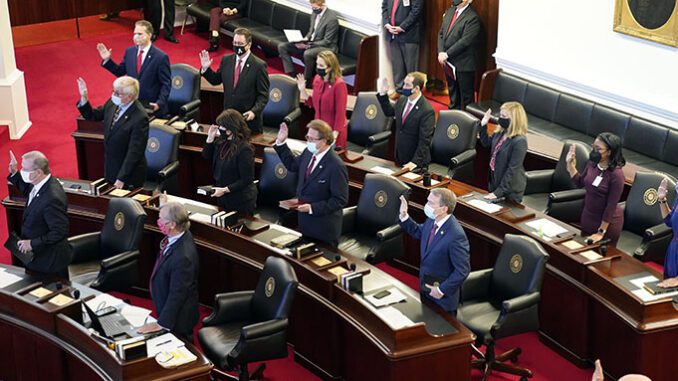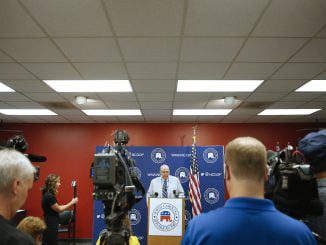
RALEIGH — A North Carolina House proposal to reject the $300 federal bonus that is being added to state unemployment benefits passed 71-36 on June 3, while two days earlier, the Senate passed a proposal, by a 35-10 margin, to continue accepting the funding but to use it for “get-back-to-work” bonuses.
The dueling strategies for how to respond to the federal funds come amidst a call by business organizations, including the U.S. Chamber of Commerce, to scrap the federal money due to its potential for creating a reluctance to return to work. So far, 25 states have decided to reject the money in a bid to make the benefits less attractive to their respective workforces.
“North Carolina businesses have reached their tipping point,” House Speaker Tim Moore (R-Kings Mountain) said during floor debate. “While workers are being incentivized by the federal government to stay home, many business owners have cited the additional $300-per-week federal unemployment benefits as a prime reason why they can’t hire.”
The House-backed bill, SB 116, titled “Putting North Carolina Back to Work Act,” would make unemployment benefits nontaxable income but also withdraw North Carolina from the Federal Pandemic Unemployment Compensation Agreement.
The bill received seven Democrat votes, enough to override a veto by Democratic Gov. Roy Cooper if any of the five GOP absences were to vote with their caucus during a final vote.
On the Senate side, state Sen. Chuck Edwards (R-Henderson) took the lead on House Bill 128, titled “An Act to Reemploy NC’s Workforce.” Edwards, along with Lt. Gov. Mark Robinson and U.S. Rep. Ted Budd, held a press conference before the vote explaining why they believed one-time “get-back-to-work” bonuses were the best way to address the issue.
“I don’t like the precedent of government paying able-bodied people to find a job, but this issue requires a solution,” Edwards said. “Employers can’t hire people because government is paying them not to work, and we’ve got to fix it.”
Budd also spoke at the press conference, saying, “The current enhanced unemployment system has essentially created a stay-at-home bonus. We should reverse the incentive and create a temporary back-to-work bonus instead.”
The bill would offer $1,500 bonuses to those returning to work within 30 days of the act becoming law and $800 for those returning to work between 30 and 60 days of the act becoming law.
The Senate passed the bill later that day, and like with SB 116, HB 128 received enough bipartisan support to override any Cooper veto. All Republicans present, along with eight Democrats, voted for HB 128; 10 Democrats voted against the bill.
Pat Ryan, a spokesperson for Senate Leader Phil Berger (R-Eden), told NSJ that Senate Republicans believed their proposal had a better chance of being signed into law than the House version that simply scraps the benefits altogether.
“The practical reality is that legislation to end the $300 supplement will not become law because of Gov. Cooper’s opposition, so we can either continue with the status quo or try to convert the stay-at-home funding into a back-to-work bonus,” Ryan said.
North State Journal reached out to the governor’s office asking if he would consider signing either of these bills but did not hear back by time of publication.




